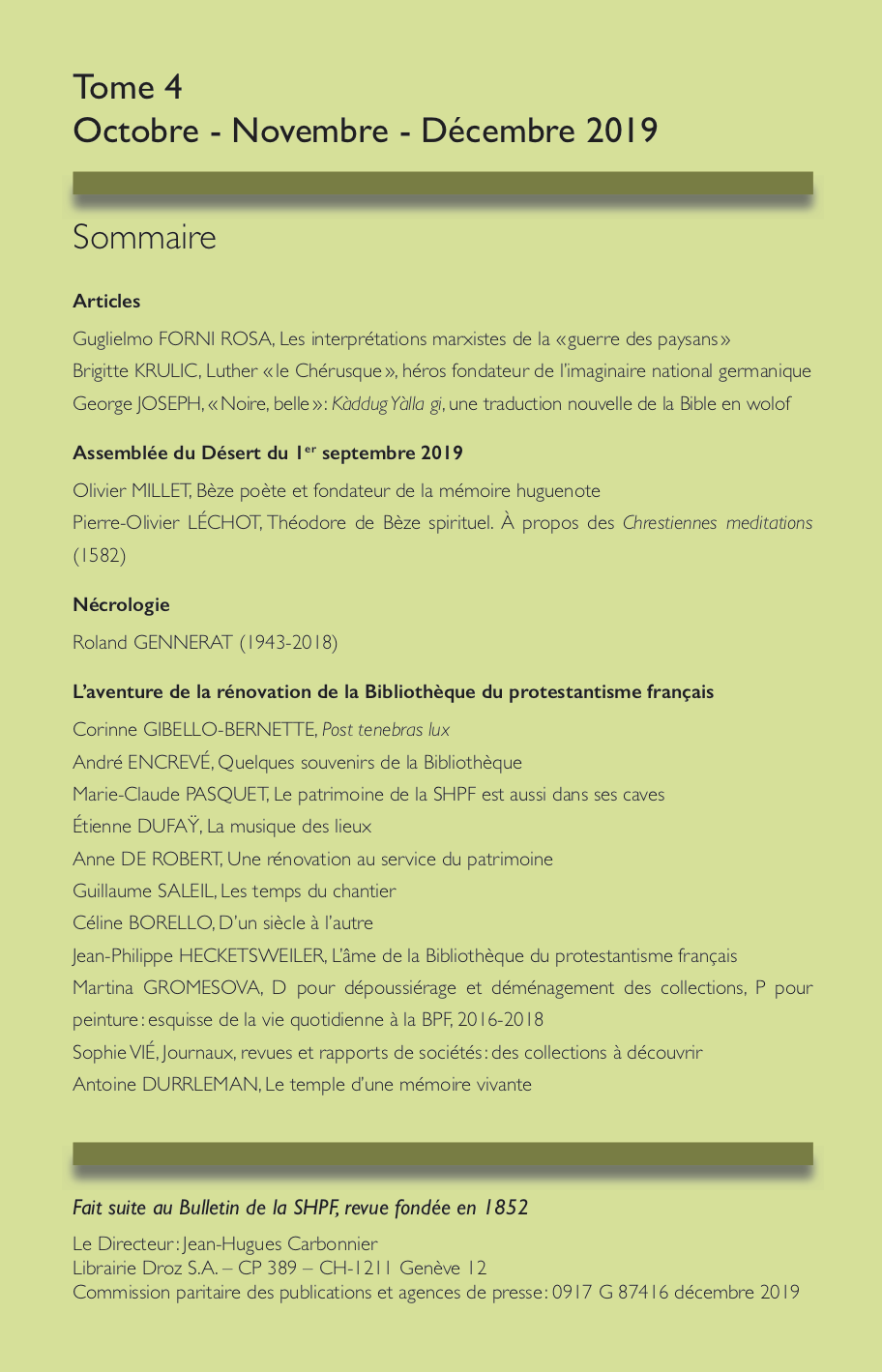Luther « le Chérusque », héros fondateur de l’imaginaire national germanique
Abstract
During his stay in the Wartburg castle, Luther began to translate the Bible into German, thereby making a decisive contribution to the emergence of a sense of German identity. Luther’s achievement is part of a larger process reaching back into the fifteenth century when Tacitus’s major works were “rediscovered” and Arminius, the chieftain of the Cherusci tribes who defeated the Roman legions at the Battle of the Teutoburg Forest (9 AD), was hailed as a mythical figure and a symbol of German freedom. Luther identified himself with the “national hero” who shaped the original Volk: Ita nunc Luther Cheruskus, eyn Hartzlander, Romam devastat. In this way, he established a continuity and an interpretative pattern in German history, from Rome as the capital city of the Empire of the Caesars to Rome as the seat of the Catholic Church, from Germania to the Holy Roman Empire. Rehabilitating popular language, developing a concept of Christian freedom independently from political and social pursuits, the Protestant Reformation laid the foundation for the idea of a language-defined nation which was then theorized by German thinkers in the Age of Enlightenment: the Kulturnation emphasizes the major notions of Kultur vs Zivilisation, interiority (Innerlichkeit) and national character (Nationalcharakter), as defined by one’s mother tongue. The Napoleonic wars revived the identity-building antagonism between Germans and Romans, which had its origins in the early stages of the Reformation process.
